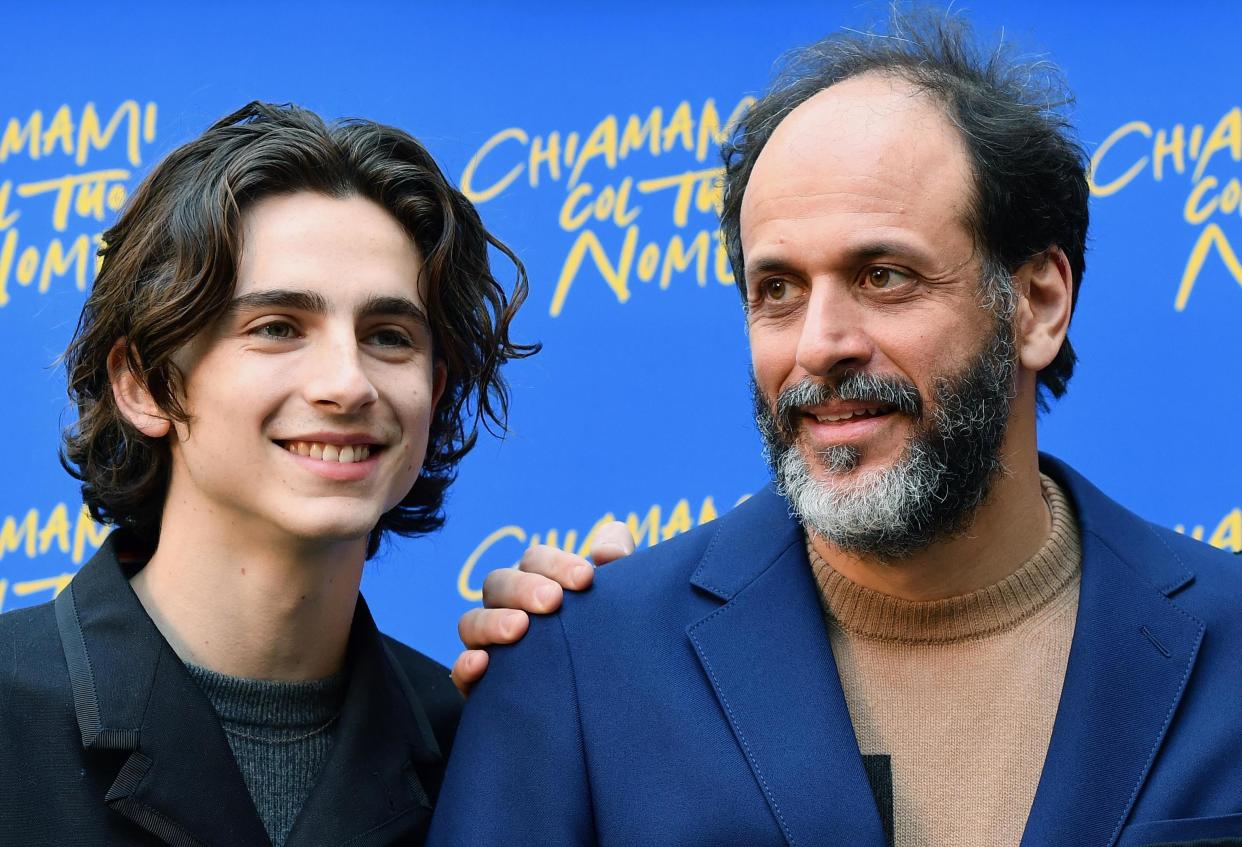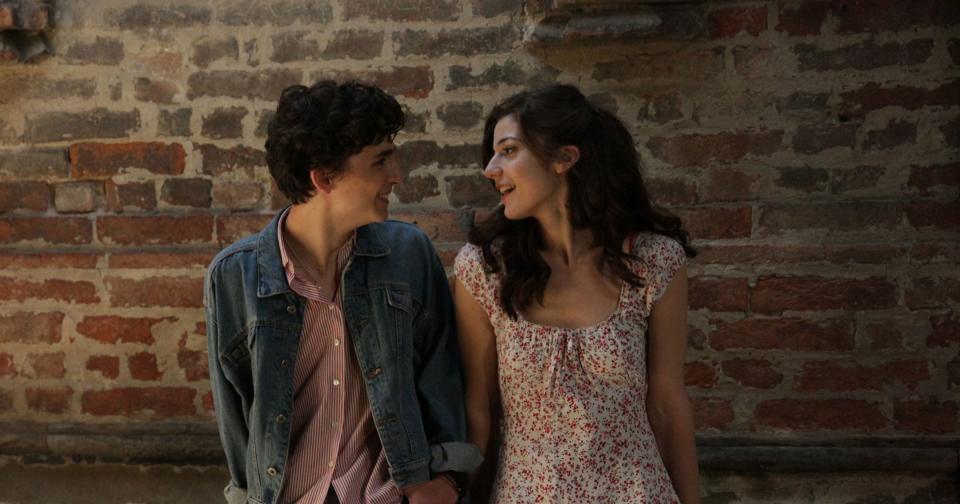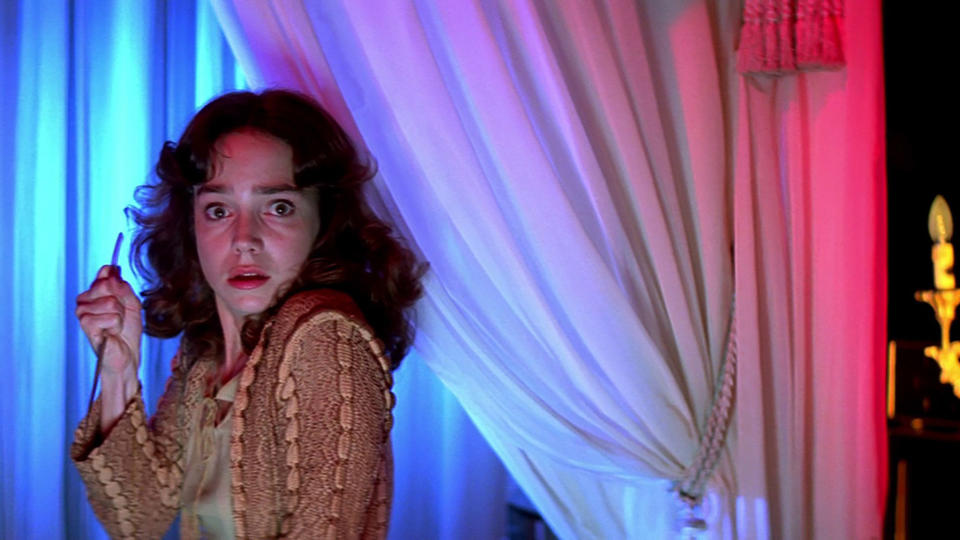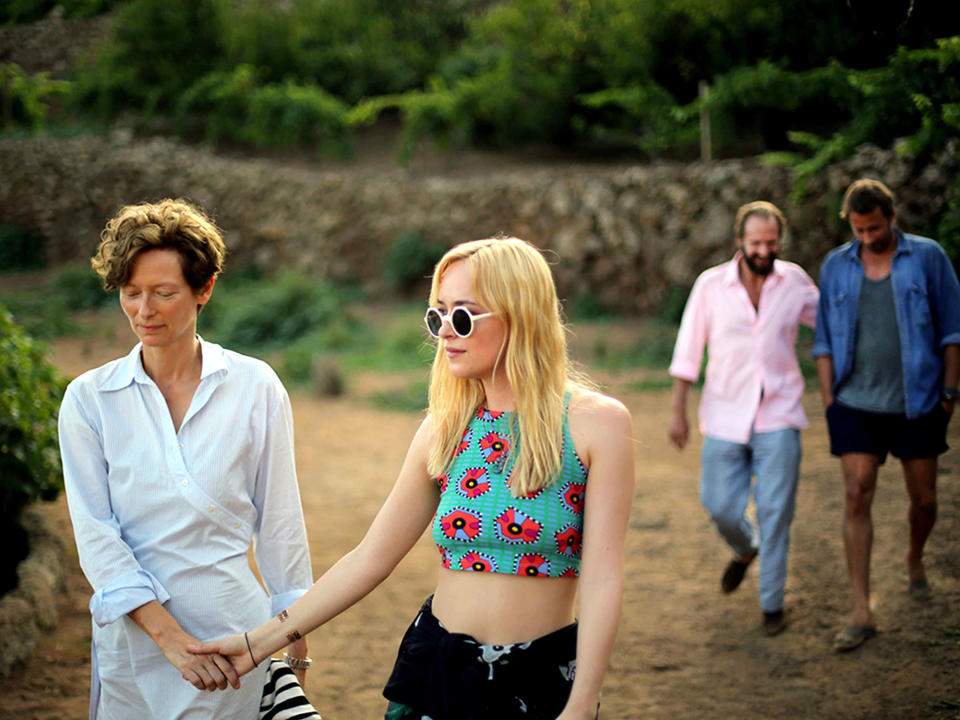'Call Me By Your Name' director talks empowering women, his 'Suspiria' remake and not getting to make 'Black Panther'

Call Me By Your Name has earned serious awards season buzz with a Best Picture nomination at this year’s Oscars ceremony. The film’s director, Luca Guadagnino, talked with Yahoo Movies contributor Hanna Flint to discuss the film, his upcoming remake of the horror movie Suspiria and what it would take for him to make a superhero movie…
Luca Guadagnino wants to empower women.
He wants to make movies that ensure women are never the victims, and given Hollywood’s current campaign to oust sexual harassment and abuse within the industry it’s certainly a welcome sentiment – especially from a male director.
“Sometimes you have to be very aware that you represent something,” the filmmaker tells me one Sunday afternoon in London. “That you have a sort of aura to yourself that you are not conscious of, which can reflect on other people. That something you might do, even if you don’t have a certain intent, may come through as a usage of power.
“I am always being very wary of films that put the women in the position of the victim.”
Guadagnino certainly has the cinematic receipts to prove that his films don’t fall into this category. In I Am Love, Emma (played by Tilda Swinton) breaks free from the shackles of her unhappy marriage even when she is shunned by her family, while Swinton’s character in A Bigger Splash does not allow herself to be drawn back into the nostalgic love of her former lover – it is he that ends up the victim, not her.

In his most recent cinematic outing, Call Me By Your Name, no woman is victimised either. “I think I am really pretty strong in making movies that are about decisions that are made by women,” Guadagnino explains. “Even with Marzia and Elio. Love is cruel, lovers are cruel and it happened that he had an emotion for Oliver that makes him be cruel to Marzia, but how strong is it that she is the one who tells him we have to be friends forever?”
It’s clear where this feminist attitude comes from with the amount of times he mentions his mother during this interview. She took him to see his first movie, Lawrence of Arabia (“my mum loved Peter O’Toole”), and it is her influence, as well as the work of feminists artists of the Seventies like Gina Pane, Francesca Woodman, Judy Chicago and Ana Mendieta, that helped shape his creative outlook. It is because of this perspective he was drawn to remaking Suspiria, Dario Argento’s 1977 horror film that he describes as being “soaked in the ideas of feminist art.”
It tells the story of an American ballet dancer who joins a ballet academy in Germany, only to discover that dark and sinister powers are at work, and it certainly ticks most of the feminist filmmaking boxes. The cast is predominantly women (with just a few men in minor roles), its narrative is pushed forward by the actions of women only and the underlying theme centres on the power of the female collective.
Guadagnino’s remake sees his A Bigger Splash star Dakota Johnson take on the lead role as Susie Bannon, with Chloe Moretz, Mia Goth and Tilda Swinton in the 38-strong female cast that he is very proud of.
“I hope that this movie, made by a man, turns out to be experienced through its horrors as a sort of fierce showcase of the female artistic experience,” the director says. “The relentless, unsentimental idea of femininity that I grew up witnessing, that I’ve been accompanied by in my life. It’s going to be the witches are back.”

His words are certainly encouraging to hear but when it comes to putting women on screen it’s fair to say there has, so far, been a lack of colour in his female characters. Even the next two movies on his slate feature white female leads: Felicity Jones in Swan Lake and Jennifer Lawrence in Burial Rites. Guadagnino himself is of mixed heritage – his mother is Algerian and his father is Sicilian – and explains that even though his was made to feel “other” when he moved back to Italy after several years of living in Ethiopia, he doesn’t want to force inauthentic narratives.
“I came from Addis Ababba to Palermo at the age of six and a half,” the director recalls. “I’m fairly dark-skinned and I went into my first day of school in Palermo, and this little boy said to me ‘n***er.’ I said to him ‘white.’
“That was my reply to him because I just didn’t understand the idea of discrimination based on the skin, as much as I do not understand the idea of fitting within specific stories an agenda that is alien to the story.”
That being said, Guadagnino does want to be telling far more diverse stories. He’s been trying to adapt one of famed African-American writer James Baldwin’s novels for years, but says “the rights are impossible to grasp,” and wishes he could have made Jonathan Demme’s adaptation of Toni Morrison’s Beloved.

The director even says he was sad not to be offered the chance to direct Black Panther or Creed because he would “have loved to have made those films,” and admits he would be willing to make a superhero movie if “it’s a great script” and he was given “complete control.”
However, as Guadagnino looks forward at his career, and the potential for more storytelling, he’s hoping to expand his body of work to incorporate a more intersectional perspective. “I am 46, I have made few movies in my life, not as many as I wish I was making, and I am ready to make and tell stories that are [about] people of all the colours,” Guadagnino says.
“It’s a very important question because it allows me to say two things: it’s important that stories are inhabited by all varieties of humankind as much as it is important that as a storyteller, stories are organic and whole.”
Call Me By Your Name is available on DVD & Blu-Ray on March 5 or digital download on February 19
READ MORE
Altered Carbon: The one change that could have fixed its race dilemma
Black Lightening showrunner says show isn’t anti-white
Black Mirror challenges the notion of Britishness

 Yahoo Movies
Yahoo Movies 
